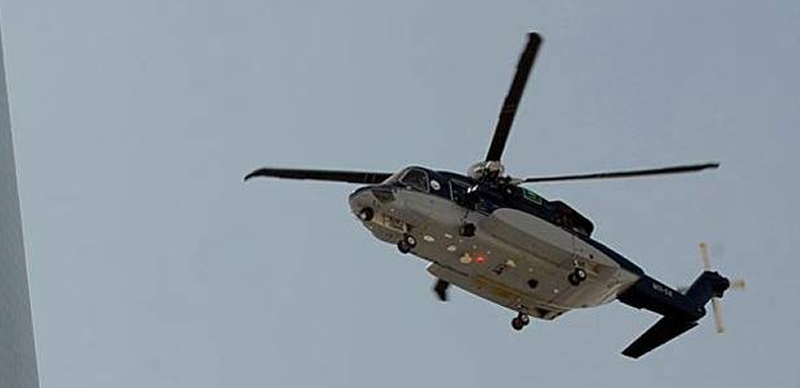Addressing the Pilot Shortage: A Multifaceted Approach
The aviation industry is currently facing a significant challenge: a growing shortage of qualified pilots. This scarcity has far-reaching implications, impacting airlines, helicopter operators, and the overall accessibility of air travel. Okechukwu Onuchukwu, a seasoned helicopter pilot, has offered valuable insights into this issue, emphasizing the critical need to enhance pilot training pipelines and outlining several strategies to attract, train, and retain pilots. His recommendations encompass a range of approaches, from improving training programs and career incentives to promoting diversity and supporting pilot well-being.
Strengthening the Pilot Training Pipeline: A Public-Private Partnership
Onuchukwu advocates for bolstering the pilot training pipeline through a collaborative effort between the public and private sectors. He highlights the crucial role private operators have played in sponsoring pilot training programs, particularly in the rotary-wing sector. Companies like Aero Contractors and Bristow have taken the lead in these initiatives, offering comprehensive training that combines local instruction with advanced training abroad. Onuchukwu himself benefited from Bristow’s program, which included training at the International Helicopter Flying School in Ilorin, Kwara State, and subsequent advanced training in Florida, USA. Building on this model, a public-private partnership could expand training opportunities, making pilot training more accessible and affordable for aspiring aviators. This collaborative approach would pool resources and expertise, ensuring a steady supply of well-trained pilots to meet the industry’s growing demands.
Enhancing Career Incentives: Attracting and Retaining Talent
Competitive compensation and benefits packages are essential for attracting and retaining talented individuals in the aviation industry. Onuchukwu stresses the importance of offering attractive salaries, housing allowances, travel perks, and clear career progression pathways to make pilot careers more appealing. In addition to financial incentives, he emphasizes the need for a healthy work-life balance. Flexible work schedules and efforts to reduce fatigue-inducing work conditions are crucial for pilot well-being and long-term career satisfaction. The Nigerian Civil Aviation Authority has already made strides in this area with existing regulations, but ongoing efforts are needed to ensure that pilots have adequate rest periods and access to mental health resources. These measures will not only improve pilot retention but also enhance safety and productivity within the industry.
Promoting Diversity: Expanding the Talent Pool
Onuchukwu highlights the importance of diversity within the pilot profession. While the number of female pilots has been steadily increasing, there’s still a significant gender gap. To achieve greater parity, targeted outreach programs are needed to encourage young women to consider aviation careers. This includes promoting aviation-focused programs in schools, hosting aviation camps, and establishing mentorship programs to inspire the next generation of female pilots. By fostering a more inclusive environment, the aviation industry can tap into a wider talent pool and benefit from the diverse perspectives and skills that women bring to the profession.
Retention Strategies: Valuing Experienced Pilots
Retaining experienced pilots is just as crucial as attracting new talent. Onuchukwu proposes several strategies to incentivize experienced pilots to remain in the industry. These include loyalty bonuses, comprehensive insurance packages, and company-funded employee savings plans. Such benefits not only demonstrate a commitment to pilot well-being but also provide long-term financial security. Furthermore, robust support systems, including access to mental health resources and adequate rest periods, are essential for preventing burnout and ensuring long-term productivity among experienced pilots. By investing in the well-being of its workforce, the aviation industry can retain valuable expertise and maintain a high level of safety and operational efficiency.
Looking Ahead: A Sustainable Future for Aviation
The aviation industry’s future hinges on its ability to address the pilot shortage effectively. Onuchukwu’s recommendations offer a comprehensive roadmap for tackling this challenge. By strengthening training pipelines, improving career incentives, promoting diversity, and implementing retention strategies, the industry can ensure a sustainable supply of highly skilled and dedicated pilots. These efforts will not only benefit the aviation sector but also contribute to the broader economy by facilitating travel, trade, and connectivity. A collaborative approach, involving both public and private stakeholders, is essential for implementing these recommendations and securing a bright future for aviation.
Collaboration and Implementation: Key to Success
The success of these strategies relies on effective collaboration and implementation. Government agencies, regulatory bodies, aviation companies, and training institutions must work together to create a supportive environment for aspiring and experienced pilots. This includes streamlining regulations, investing in training infrastructure, and promoting aviation careers to a wider audience. By working in concert, these stakeholders can address the pilot shortage head-on and ensure a vibrant and sustainable future for the aviation industry. The challenges are significant, but with concerted effort and a commitment to innovation, the aviation industry can overcome this hurdle and continue to soar.














